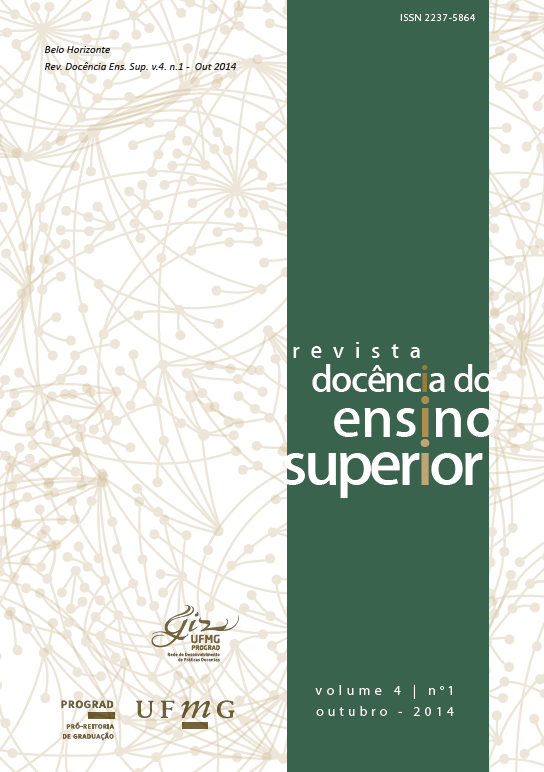A formação continuada em tutoria a partir da interação no ambiente virtual
DOI:
https://doi.org/10.35699/2237-5864.2014.1982Palabras clave:
Educação a distância, Tutoria, Formação continuada, Sala de tutores, Docência do ensino superiorResumen
Este artigo relata a formação continuada da Tutoria na experiência de educação a distância (EaD) implementada na Universidade Federal de Minas Gerais (UFMG) por meio do GIZ/Prograd. No contexto do Reuni, o GIZ implementou o Curso Formação em Docência do Ensino Superior. Ofertado a mestrandos e doutorandos da UFMG, o curso dispõe de uma equipe composta, em sua maioria, por pós-graduandos em Educação, além de funcionários do GIZ. A formação acontece em um espaço de interação virtual – Sala dos Tutores – no qual as estratégias didático-pedagógicas são discutidas antes de serem implementadas. Os desafios em estabelecer uma dinâmica pedagógica eficiente, com base nos aspectos teóricos, metodológicos e tecnológicos da formação, foco desta análise, foram sistematicamente discutidos e desenvolvidos nesse espaço, ao mesmo tempo que ocorria a formação teórico-prática dos sujeitos. Os resultados remetem à reflexão sobre as potencialidades pedagógicas da formação a distância dos sujeitos que atuarão com a Tutoria em EaD.
Descargas
Descargas
Publicado
Número
Sección
Licencia
Los autores que publican en esta revista conservan los derechos de autor y otorgan a la revista el derecho de primera publicación, siendo la obra licenciada simultáneamente bajo la Creative Commons Attribution License, que permite compartir la obra con reconocimiento de autoría y publicación inicial en esta revista.
Los autores están autorizados a asumir contratos adicionales por separado, para la distribución no exclusiva de la versión del trabajo publicado en esta revista (por ejemplo, publicación en un repositorio institucional o como capítulo de libro), con reconocimiento de autoría y publicación inicial en esta revista.
Política de acceso abierto:
La Revista Docência do Ensino Superior es una revista de Acceso Abierto, lo que significa que todo el contenido está disponible de forma gratuita, sin costo para el usuario o su institución. Los usuarios pueden leer, descargar, copiar, distribuir, imprimir, buscar o vincular a los textos completos de los artículos, o utilizarlos para cualquier otro propósito legal, sin necesidad de obtener el permiso previo del editor o autor, siempre que respeten la licencia de uso. los Creative Commons utilizados por la revista. Esta definición de acceso abierto está en línea con la Iniciativa de Acceso Abierto de Budapest (BOAI).



























